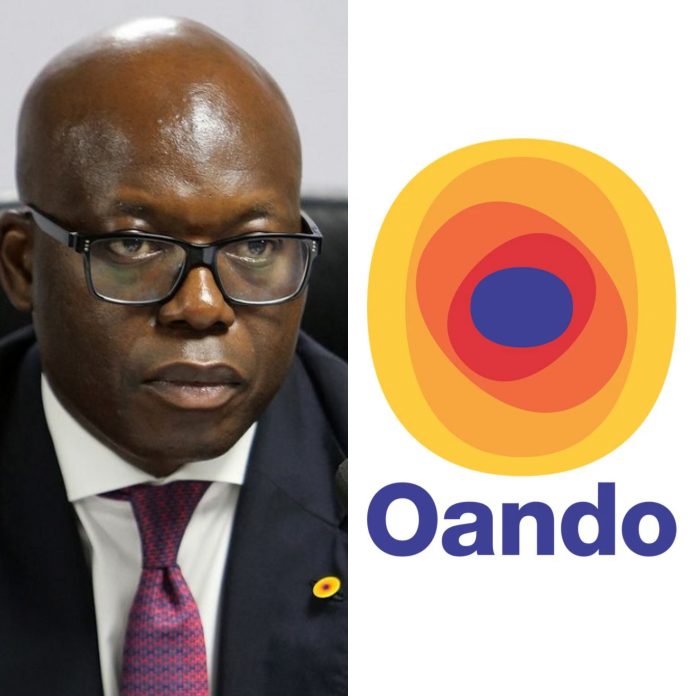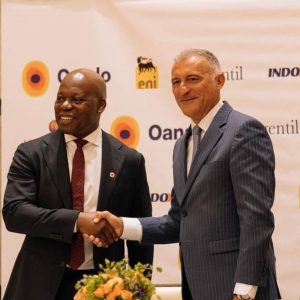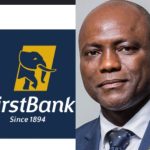...To get all news updates, Join our WhatsApp Group (Click Here)
Also Join our WhatsApp Channel (Click Here)
This is good news coming the way of Oando Plc as it completed the acquisition of 100 percent of the shareholding interest in the Nigerian Agip Oil Company (NAOC) from the Italian energy company, Eni, for a total consideration of $783 million comprised of consideration for the asset and reimbursement
Oando said in a statement at the NGX signed by Ayotola Jagun, Chief Compliance Officer and Company Secretary that, “This acquisition is a significant milestone in Oando’s long-term strategy to expand its upstream operations and strengthen its position in the Nigerian oil and gas sector.”
The transaction increases Oando’s current participating interests in OMLs 60, 61, 62, and 63 from 20 percent to 40 percent. It increases Oando’s ownership stake in all NEPL/NAOC/OOL Joint Venture assets and infrastructure which include forty discovered oil and gas fields, of which twenty-four are currently producing, approximately forty identified prospects and leads, twelve production stations, approximately 1,490 km of pipelines, three gas processing plants, the Brass River Oil Terminal, the Kwale Okpai phases 1 & 2 power plants (with a total nameplate capacity of 960MW), and associated infrastructure.
Adewale Tinubu and Guido Brusco ENI Chief Operating Officer
Based on 2022 reserves estimates, Oando’s total reserves stand at 505.6MMboe and the transaction will deliver a 98percent increase of 493.6MMboe, bringing the total reserves to 1.0Bnboe. The transaction is immediately cash generative and will contribute significantly to the cashflows of the company.
Wale Tinubu, Group Chief Executive, Oando Plc said: “Today’s announcement is the culmination of ten years of toil, resilience, and an unwavering belief in the realisation of our ambition since the 2014 entry into the Joint Venture via the acquisition of Conoco-Philips Nigerian Portfolio. It is a win for Oando, and every indigenous energy player, as we take our destiny in our hands, and play a pivotal role in this next phase of the nation’s upstream evolution.
“With our assumption of the role of operator, our immediate focus is on optimising the assets’ immense potential, advancing production and contributing to our strategic objectives. This we will do while prioritizing responsible practices and sustainable development in ensuring a balanced approach to our host communities, and environmental stewardship as we complement the nation’s plan to boost production output”.
“Looking to the future, we will continue to pursue strategic diversification opportunities within the broader energy sector that provide enhanced growth and value creation for our stakeholders, particularly in clean energy, agri-feedstock sector, as well as energy infrastructure and mining,” he said.
Oando’s acquisition of 100 percent of the shareholding interest in the Nigerian Agip Oil Company comes as former Vice President Atiku Abubakar accused President Bola Tinubu of turning Nigeria into a private enterprise, noting that the “future of Nigerians has been effectively mortgaged to President Bola Tinubu, his family, and associates.”
Wale Tinubu who is CEO of Oando Plc is close relation of President Tinubu. Oando recently sold its petrol stations to NNPC which is the sole importer of petrol into Nigeria.
The former vice president expressed fears that it will be nearly impossible to break the shackles of Tinubu from Nigeria, even after the president leaves office.
Reacting to Atiku’s submission on the acquisition of OVH on Wednesday, the NNPC in a statement signed by Olufemi Soneye, Chief Corporate Communications Officer NNPC Ltd., Abuja said inter-alia, “Contrary to the false alarm raised, neither Wale Tinubu nor the President has any interest in the OVH acquisition.”
The reaction titled: “OVH Acquisition: The Facts, by NNPC Ltd” reads:
“The attention of NNPC Ltd. has been drawn to a press release signed by Mr. Paul Ibe, a Media Adviser to the former Vice President, Alhaji Atiku Abubakar.
National growth LS “In the statement, the former Vice President was quoted to have lamented “the criminal hijack of the NNPC by corporate cabals around the current President”.
“He was also quoted to have listed the retention of Mr. Mele Kyari as the Group Chief Executive Officer of NNPC Ltd as a compensation for the alleged acquisition of NNPC Retail Ltd. by OVH in which he claimed Mr. Wale Tinubu held 49% stake.
“He further alleged that the NNPC Retail Ltd—OVH acquisition deal was part of a grand scheme by President Bola Ahmed Tinubu to integrate his personal business interests into Nigeria’s public enterprises at the federal level.
Soneye said further, “NNPC Ltd. wishes to set the records straight with the following facts:
“We are a commercially-focused and profit-driven company managed by professionals who are committed to adding value to the nation;
“Investment decisions by NNPC Ltd. Management are strictly determined on the basis of commercial viability and national interest.
“At the time NNPC Ltd. acquired OVH in 2022, Oando (in which Mr. Wale Tinubu has equity interest), had fully divested its equity in OVH to the other partners – Vitol and Helios. Oando actually began its divestment in 2016, with Vitol and Helios coming in as equity partners, leading to the change of name from Oando to OVH. In 2019, Oando fully divested its equity interest in OVH resulting in Vitol and Helios holding 50% equity interests, respectively.
“Upon acquisition of OVH by NNPC Ltd, both NNPC Retail Ltd. and OVH effectively became subsidiaries of NNPC Ltd. However, based on professional advice and sound commercial considerations, NNPC Ltd. opted to merge NNPC Retail Limited into OVH, and thereafter retain NNPC Retail Limited as the company name post-merger.
“The first step of merging NNPC Retail Ltd. into OVH has been completed and the post-merger renaming as NNPC Retail Ltd. is ongoing.
“Contrary to the false alarm raised, neither Wale Tinubu nor the President has any interest in the OVH acquisition.
“As a businessman, the former Vice President should know that effectiveness in business leadership is best measured by balance sheets and bottom lines rather than pedestrian considerations.
“The management of NNPC Ltd., under the leadership of Mr. Mele Kyari, has done very well in growing the company’s fortunes as shown in the 2023 Audited Financial Statement (AFS), where it reported N3.3 trillion as profit after tax.
“NNPC Ltd. as a commercial entity is devoid of political interest and shall continue to conduct its business full of commitment to national interest and value creation for the benefit of all stakeholders. NNPC Ltd. shall resist any attempt to draw its Board and Management into partisan politics.”
You can get every of our news as soon as they drop on WhatsApp ...To get all news updates, Join our WhatsApp Group (Click Here)
Also Join our WhatsApp Channel (Click Here)









